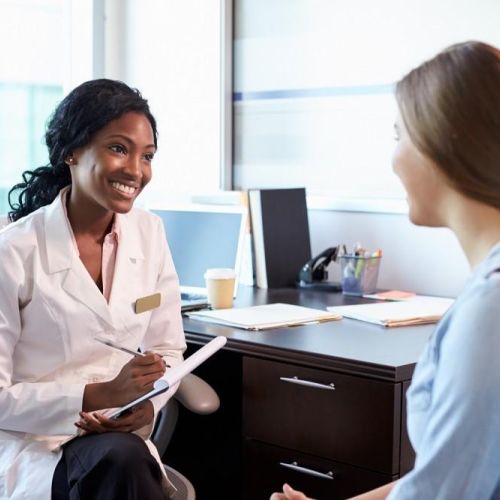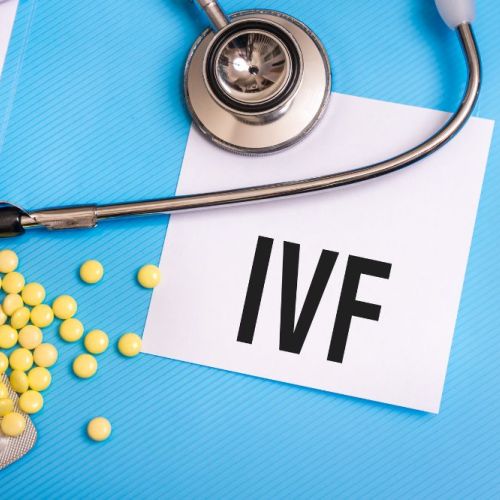What Disqualifies You From Egg Donation?

Women consider donating eggs for several different reasons. Many are motivated by having the opportunity to truly make a difference in someone else’s life, especially if they’ve seen a loved one struggle with infertility. When potential egg donors are screened for donation, they receive an in-depth assessment of their health and fertility. Some women decide to donate eggs because they don’t believe they’ll have a family themselves and donating eggs allows them to pass on their genes. Since egg donors receive a generous monetary compensation, donating eggs may help some donors reach some of their financial goals.
The Center for Reproductive Health welcomes questions from women who may be considering donating their eggs. Some women who are interested in becoming an egg donor may not qualify. What disqualifies you from egg donation?
Overall Health and Unhealthy Habits
To be an egg donor, you need to be in good health both mentally and physically. You should have regular monthly periods with no reproductive abnormalities or disorders. Donors are required to be at a healthy BMI and there should be no family history of inheritable genetic disorders.
Some of your lifestyle choices could disqualify you from egg donation. If you’re a smoker, drink heavily or have a history of substance abuse, you may be disqualified. You must be free of sexually transmitted diseases for the last 12 months.
Egg donors undergo both physical and psychological screening. A psychologist evaluates a potential donor’s mental health to make sure they’re mentally stable and able to cope with mood swings that may happen as a side effect of fertility medication.
Your Age
One of the most important factors in egg donation is age, and donors are required to be between the age of 20 and 31. This is the time of life that there’s the best chance of having high quantity and good quality healthy eggs available, which is important because recipients of donated eggs need to know they are getting the best possible chance of attaining a successful pregnancy.
As women get older, there’s a greater chance of having poor egg quality and chromosomal abnormalities, so if you’re over the age of 31, you’ll be disqualified. Another consideration is that women in their 30s may not respond well to fertility medication.
Young women under the age of 20 are also disqualified, because it’s important for an egg donor to have the maturity needed to understand what the requirements of egg donation are and to follow through on the commitment that they’ve made.
Legalities
If you pass the screening for becoming an egg donor, you’ll be required to sign a contract that signifies your commitment to going through he process start to finish. You can’t sign a contract with more than one agency, so if you’ve already signed a contract with a different agency, you would be disqualified.
If you’re interested in becoming an egg donor and believe you meet the qualifications required, reach out to the Center for Reproductive Health to apply or to have additional questions answered.
Eliran Mor, MD
Reproductive Endocrinologist located in Encino, Santa Monica, Valencia & West Hollywood, CA
FAQ
Reproductive endocrinology and Infertility is a sub-specialty of Obstetrics and Gynecology. In addition to managing medical and surgical treatment of disorders of the female reproductive tract, reproductive endocrinologist and infertility (REI) specialists undergo additional years of training to provide fertility treatments using assisted reproductive technology (ART) such as in vitro fertilization.
Reproductive endocrinologists receive board certification by the American Board of Obstetrics and Gynecology in both Obstetrics and Gynecology and Reproductive Endocrinology and Infertility.
In general, patients should consider consulting with an REI specialist after one year of trying unsuccessfully to achieve pregnancy. The chance of conceiving every month is around 20%, therefore after a full year of trying approximately 15% of couples will still not have achieved a pregnancy.
However, if a woman is over the age of 35 it would be reasonable to see a fertility specialist earlier, typically after 6 months of trying.
Other candidates to seek earlier treatment are women who have irregular menses, endometriosis, fibroids, polycystic ovary syndrome (PCOS), women who have had 2 or more miscarriages, or problems with the fallopian tubes (prior ectopic pregnancy).
Approximately 1/3 of the time cause for infertility is a female factor, 1/3 of the time a male factor, and the remaining 1/3 a couples’ factor.
At CCRH, we emphasize the importance of establishing a correct diagnosis. Both partners undergo a comprehensive evaluation including a medical history and physical exam.
Furthremore, the woman’s ovarian reserve is assessed with a pelvic ultrasound and a hormonal profile. A hysterosalpingogram (HSG) will confirm fallopian tube patency and the uterine cavity is free of intracavitary lesions. A semen analysis is also obtained to evaluate for concentration, motility, and morphology of the sperm.
Additional work up is then individualized to direct the best possible treatment option for each couple.
In vitro fertilization (IVF) is the process that involves fertilization of an egg outside of a woman’s body.
The process starts with fertility drugs prescribed to help stimulate egg development. In your natural cycle, your body is only able to grow one dominant egg, but with stimulation medication we can recruit multiple eggs to continue to grow. After about 8-10 days of stimulation, the eggs are surgically retrieved and then fertilized with sperm in a specialized laboratory. Fertilized eggs are then cultured under a strictly controlled environment within specialized incubators in the IVF laboratory for 3-5 days while they develop as embryos. Finally, embryos (or an embryo) are transferred into the uterine cavity for implantation.
Before deciding if IVF is the right choice, it’s important to sit down with an REI specialist to discuss available treatment options. For some people, other methods such as fertility drugs, intrauterine insemination (IUI) may be the best first choice treatment. At CCRH, we believe each individual couple is unique and not everyone needs IVF.
While not painful, the fertility medications may some side effects including headaches, hot flashes, mood swings, and bloating. The injection sites may also bruise.
Unfortunately, no. Many people think once they start IVF it’s a matter of time that they will be pregnant and have a baby. But according to national statistics per the Society of Assisted Reproduction (SART), on average 40% of assisted reproduction cycles achieve live births in women under age 35. The chances of success then continue to decrease with advancing age.
At CCRH, we employ only evidence-based interventions to ensure patient safety and optimal outcome. While we cannot guarantee a baby, we guarantee that you will receive the best, most advanced, personalized care to help you maximize your chance of a baby.
The average IVF success rate (success measured in live birth rate) using one’s own eggs begins to drop around age 35 and then rapidly after age 40. This is due to the decline in egg quantity and egg quality as a woman ages.
Our clinic’s success rate consistently beats the national average year after year.
Individual insurance plans often do not have any coverage for infertility treatments. If you have a group plan, you can call members services to see if they have coverage for infertility (including consultation/workup and IVF).
After your consultation with our REI specialist, one of our dedicated account managers with sit with you to go over the cost of treatment.




